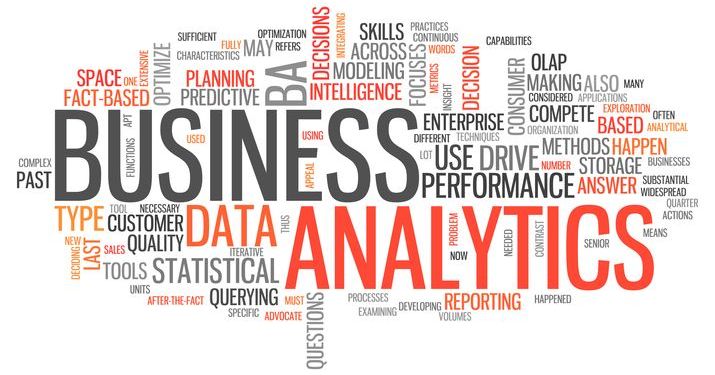What is Business Analytics? Definition, Aspects and Uses
Last Updated March 27, 2024

The word analytics has become ubiquitous, encountered in just about every industry.
Whether it’s to evaluate a basketball player’s passing tendencies, study a website’s traffic numbers or project the future earnings of a restaurant, it seems that in the modern era of business, analytics is a driving force in understanding the reality of how businesses and investments perform.
The focus of business analytics is to look at skills, technologies, and practices that allow for the continuous exploration and investigation of past business performance to gain insight. In other words, it’s about understanding data and using it to make smarter decisions based on the relevant information extracted.
Business analytics is built on statistical data and can drive business planning, but not without a comprehensive understanding of the volume and variety of information and the speed at which it’s received.
Tom Davenport, President’s Distinguished Professor in Management and Information Technology at Babson College, is widely thought to be the founder of analytics. He describes the practice as “the extensive use of data, statistical and quantitative analysis, explanatory and predictive models and fact-based management to drive decisions and actions.”
There are three aspects that make up the foundation of business analytics:
- The Business – For entrepreneurs, knowing a business, its goals, failures, realities, and reach is an important step in making the most of analytics. Companies need to use that knowledge to identify a problem to tackle and ultimately create value.
- Data – The information must be relevant and provide an in-depth look at any issues that need to be addressed or identify opportunities to pursue. The amount of data available to analytics professionals has increased so much in recent years that the challenge of information overload has become significant. The ability of a business to manage data and be able to use it strategically is vital to its success.
- Analytics Tools – The type of tools a business owner chooses and the ability to understand the data can determine the usefulness of analytics. Data can tell us what to do with our businesses, but if business owners don’t know when, where or how to apply the information, the effect of analytics is minimized.
How is Business Analytics Used?
In the modern landscape, most notable businesses use analytics. Warner Brothers uses it to scale DVD production to demand prior to a release date. For example, analytics showed that 45% of all DVD sales for a given movie happen in the first week a DVD is released to retailers, giving Warner Brothers a new approach to production timetables. The company has now implemented analytics to optimize the number of DVDs it produces and the locations they are shipped to maximize return on investment and reduce error rates.
Of course, the private sector is not the only area in which analytics has become a staple of how organizations improve their operations. At all levels of government and law enforcement, analytics is now playing a role in how strategic decisions are made.
The state of California implemented an analytics approach to tactical decisions with some of its police departments to better understand where and when officers should be dispatched into the community. Strategic placement of police officers through forecasting led to a 16% reduction in crime in Los Angeles. Further north in Santa Cruz, a similar approach to analytics was put in place, bringing about a 26% drop in crime.
The act of harnessing the wide range of analytics data out there allows organizations to hone in on areas that need improvement, identify new ways to grow and prepare for disruptions in their industry, according to technology futurist Daniel Burrus.
“Companies too often only see an overwhelming volume of data when they should be seeing a more comprehensive resource for elevating business strategy,” Burrus wrote in an article for The Huffington Post. Businesses should be “leveraging the data to augment competitive position relative to others in their field.”

